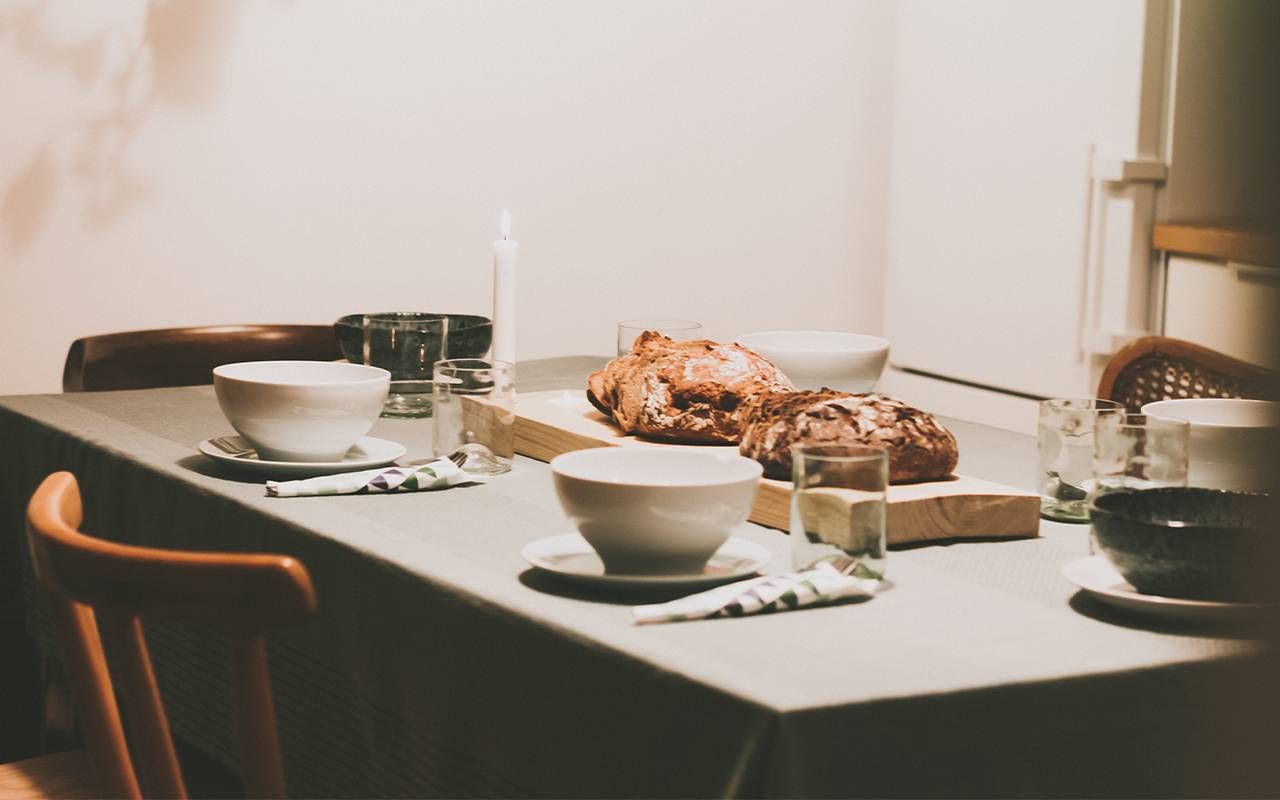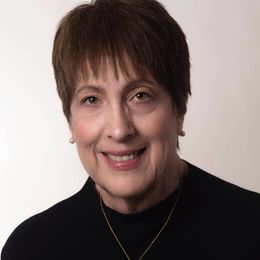My Dad's Love Was Hidden In a Dining Room Table
There was Turkish Taffy and trips to the Rockefeller Center rink, but my father truly showed his love by protecting my financial security
I grew up thinking my father didn't love me. He was a first-generation American, the son of a Polish immigrant who cleaned houses for a living. Scarred by the Great Depression, Dad was always working.

In kindergarten, my teacher asked everyone what their fathers did. My classmates' dads had cool professions: policeman, furrier, soda shop owner. I was nearly in tears when it came my turn. All I knew was that my father disappeared from our modest attached two-family Brooklyn row house from eight a.m. to six p.m.
My dad valued pensions and job security over personal satisfaction.
I stammered in a whisper, "I … don't know."
The teacher instructed me to find out. When I asked my mother, she said, "He's the director of the payroll audit department."
I still had no idea, but I repeated those eight words to a room full of befuddled five-year-olds.
Initially Dad had become an engineer thanks to Cooper Union's free tuition. He was on the design team of the Hayden Planetarium. He left the field because of anti-Semitism and became a civil servant in workman's compensation.
My dad valued pensions and job security over personal satisfaction. He took me to his office once. I sat in his swivel chair as if I were in the Oval Office, thrilled by the Hudson River view. He seemed important, even if I didn't know why. His talents were underused and he was likely bored, but he had steady paychecks for decades.
Every time he noticed a penny on the sidewalk, he'd stoop down to sweep it up and drop it into his trouser pocket. I tossed it off as a fruitless effort.
A Self-Taught Stock Analyst
Dad was a self-taught stock analyst. He was far from Warren Buffet, but he left behind a notebook with every stock he owned and posthumous instructions on when my mother should buy or sell. The stock market crashed six months later in October 1987, so his estate planning became irrelevant. "If he hadn't died," my mother said, "the crash would've killed him."
"If he hadn't died," my mother said, "the crash would've killed him."
Dad also sold real estate and prepared tax returns for private clients. His desk was in my bedroom, and I was tucked into my parents' bed until he was done working. He sent three kids to college while supporting his widowed mother and sister.
I was too young to recognize Dad's admirable values. As a kid, all I wanted was for him pay more attention to me. I was the baby of the family, arriving nine years after the younger of my two brothers, after my mother wished on a falling star that I'd be a girl.
Mom cooked every dinner and washed every plate. Her signature dish was broiled chicken, burnt black on top, an apt metaphor for her emotions. She'd dreamed of being a gym teacher but couldn't afford college.
Every evening she'd usher me away as soon as Dad removed his coat and fedora. "Don't bother him until after he reads the stock closings," she cautioned.
The ups and downs of NASDAQ should have determined his mood at dinner, but he was always introspective, hard to get to know. I felt uncomfortable when we were alone together — what would we talk about?
Our Time Together
Occasionally we bonded. Every December we'd go to Radio City to see the Rockettes. I was embarrassed that he'd buy snacks in a local drug store rather than paying the concession stand's surcharges. Little did I know I'd later inherit aspects of his economic sense and sneak candy into theaters no matter how humiliated my daughter looked.
Once he showed me how to use a slide rule, a fascinating skill that didn't help much in adult life.
Dad and I loved Turkish Taffy. He'd meticulously twist the taffy bar into a bow tie, until the middle was thin enough to pull apart into two equal pieces. I was stunned every time, as if it were a magic trick.
Afterwards we'd go ice skating in Rockefeller Center. My mom watched from the sidelines, gripping her collar closer to her neck. Dad glided gracefully as he skated backwards, something I could never master. Momentarily he was my Olympic gold medal winner, lit up by the famous Christmas tree, as big as a skyscraper.
Once he showed me how to use a slide rule, a fascinating skill that didn't help much in adult life. Dad could add up long lists of numbers in his head without the use of a calculator. But when the school curriculum implemented New Math, my father couldn't figure it out — in spite of scoring 100 on every statewide math exam.
He never raised his voice, although he was annoyed when I bit my nails. Our biggest difference was college. I'd always wanted to be a journalist, but he urged me to become an executive secretary. He sent my brothers to dental and law schools but underestimated my dreams. How could he not? He'd given up his.
He finally capitulated to my pleas to attend a four-year college in the Midwest, although we never had an all-out fight. During spring break, Dad told me, "I'm leaving the Florida condo to you in my will." It was a small "snowbird" apartment in a retirement community built over a swamp filled with alligators.
"A girl needs protection," Dad said. "Your brothers have higher income power. If your husband left you, you'd have a place to live."
What husband? I felt miffed. I was a feminist, independent, able to care for myself.
A Hidden Lesson
After Dad retired, my parents moved full-time to that Florida condo. They invited me to take furniture from their northern apartment. I replaced my husband's hand-me-down linoleum dining set with my parents' blond wooden round table with clawed legs.
Years after my father died, as I was preparing a holiday dinner, I opened the table to insert extra leaves — surprised to discover a book in a hidden cavity called "How to Avoid Probate." I didn't recall my father owning any other books except dark-spined tax code manuals. I had to look up "probate."
Turns out that the greatest love he could endow was my financial security.
Had he left it there intentionally for me to find one day? Or was he hiding it from my mother, not wanting her to think of his mortality? I'll never know. My husband and I cradled the book as if we were giving a grateful hug to my father, a man affected by the Depression whose burdens and mission was to work hard and provide for his family.
Only after he died, at the age of 75, did I understand why he didn't encourage me to be a journalist, fearful that I'd sacrifice steady paychecks for a creative career. I even felt touched that he left me the Florida condo in his will, so I'd always have a roof over my head if needed. Turns out that the greatest love he could endow was my financial security.
I think about him every time I notice a coin on the sidewalk. I always bend down to pick it up, even though a nickel or a quarter will not change my life. It would please Dad.


